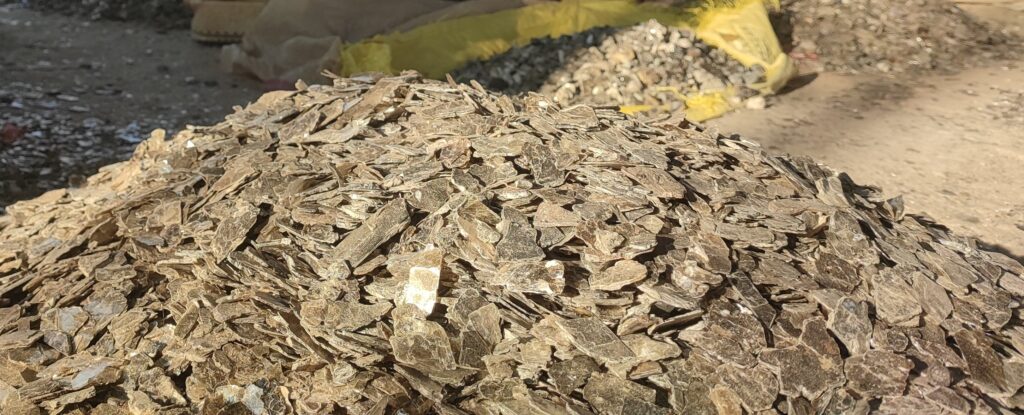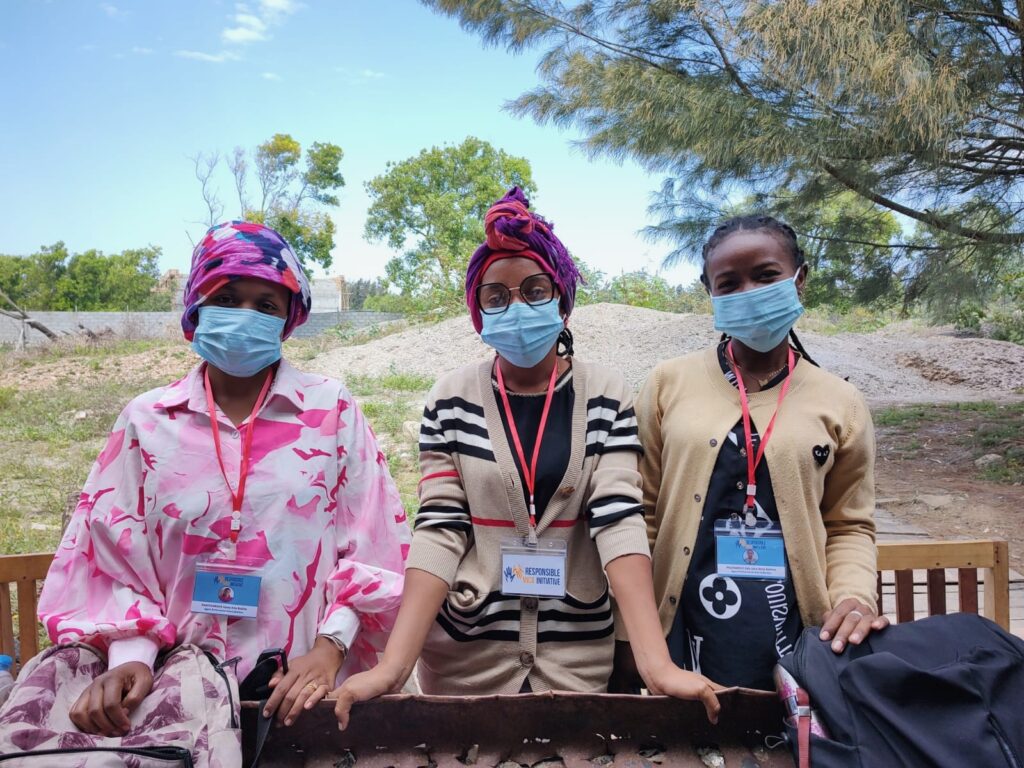Collecting worker productivity data to advance sorting site wages in Madagascar

Introduction
On September 1st, 2025, and as part of its ongoing commitment to create a responsible, fair, and sustainable mica supply chain, the Responsible Mica Initiative (RMI) has started to collect worker productivity data and map productivity drivers at RMI exporters’ sorting sites in Madagascar.
This initiative, which involves at least five mica exporter sites, is taking place over the course of three months. Mica sorters play a crucial role in preparing the mica before it gets exported to global markets. By carefully observing and analyzing their work, including the parameters that influence it, RMI aims to collect reliable and transparent data contributing to the setting of fairer wages at sorting sites – progressing toward the achievement of living wages.
This article outlines the main objectives of the ongoing data collection effort and explains how it contributes to RMI’s global mission of building a responsible mica supply chain.
Collecting worker productivity metrics is a key first step in achieving the living wage
Mica sorters, often women from local communities, are at the heart of mica processing in Madagascar. Yet, their labor is frequently undervalued, and wages often fail to meet either national minimum wage standards, let alone the benchmark of a living wage.
The living wage per kilogram is not determined by price alone. It must also reflect how much mica a sorter can realistically process in a day.
Different mica types – for example, sheet mica versus scrap mica – vary in size, quality, and therefore sorting complexity. As a result, a worker’s output can differ significantly depending on which mica type they are handling. Accurate productivity data enables calculation of realistic kilo-per-day expectations that can be matched to living wage standards.
By collecting consistent and objective productivity data, RMI aims to identify specific metrics, including median productivity rates for each mica type to ensure wage setting methodology is rooted in the authentic working conditions of sorters.
Ultimately, this initiative represents a critical step toward embedding economic fairness into the mica supply chain.
Worker monitoring methodology: systematic and targeted observations
Since early September, RMI has been implementing systematic observations at several mica exporter sorting sites in Madagascar. The process includes:
- Assessment of site operations: documenting sorters’ workflow, routine daily activities, and interactions between sorters and dockers.
- Selection of individual sorters for monitoring: based on the mica weight measurements collected during the first observation day, regular presence throughout the week to ensure consistency of monitoring, and other specific parameters.
- Targeted individual specific monitoring: tracking the productivity of selected sorters over time to establish reliable performance benchmarks, considering a variety of parameters affecting negatively or driving better productivity such as the number of continuous hours workers, age of workers, etc.
- Continuous weighing: systematically recording the weight of mica sorted by all selected workers at regularly scheduled intervals throughout the week.
This approach captures both individual productivity metrics and collective operational patterns, providing a comprehensive understanding of sorting operations.

An initiative grounded in real data supporting industry wide adoption
Monitoring productivity per mica type supports a pathway to living wage. It ensures that the wage standard reflects the actual conditions of work, supports equity across workers, and provides solid evidence for industry adoption which is critical for the implementation of effective living wage strategies.
Moreover, tracking sorter productivity across mica types highlights opportunities where additional training, better tools, or improved work organization could sustainably raise output without compromising worker employment, health or labor standards. This strengthens the case for adopting a living wage by showing pathways to affordability for employers.
The productivity performance data collection initiative in Madagascar is a significant step toward making responsible mica sourcing a reality. By linking reliable and objective sorter productivity data – across different mica types – to actual price-per-kilogram, RMI is aiming to address one of the most pressing challenges in the mica sector: ensuring that sorters earn enough to meet their basic needs and support their families.
Through evidence-based data, inclusive dialogue, and collaboration with local stakeholders, RMI is laying the foundation for a mica supply chain that is not only sustainable but also fair.
Together, we can ensure that mica production contributes to better livelihoods, safer working conditions, and stronger communities.


